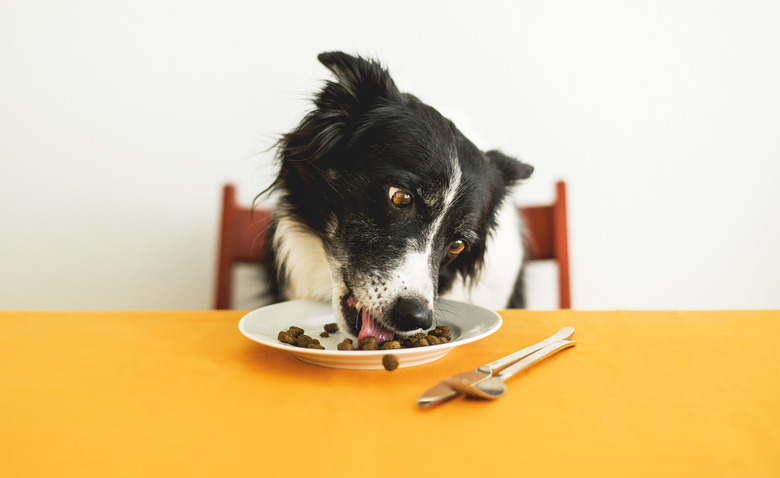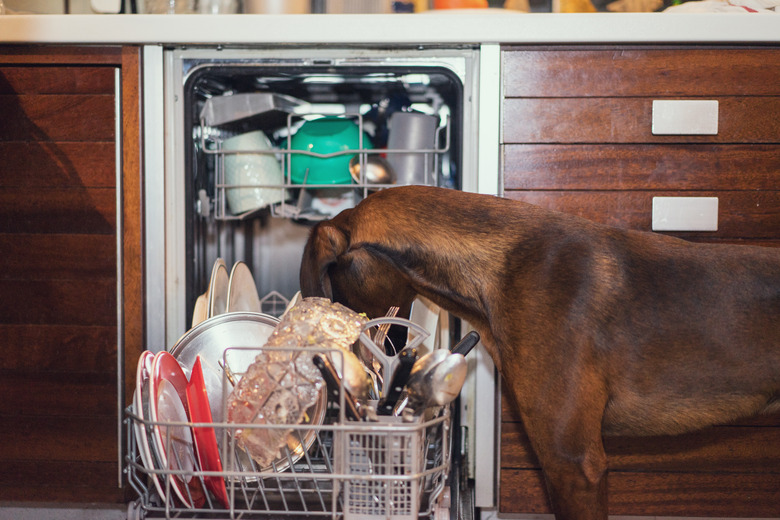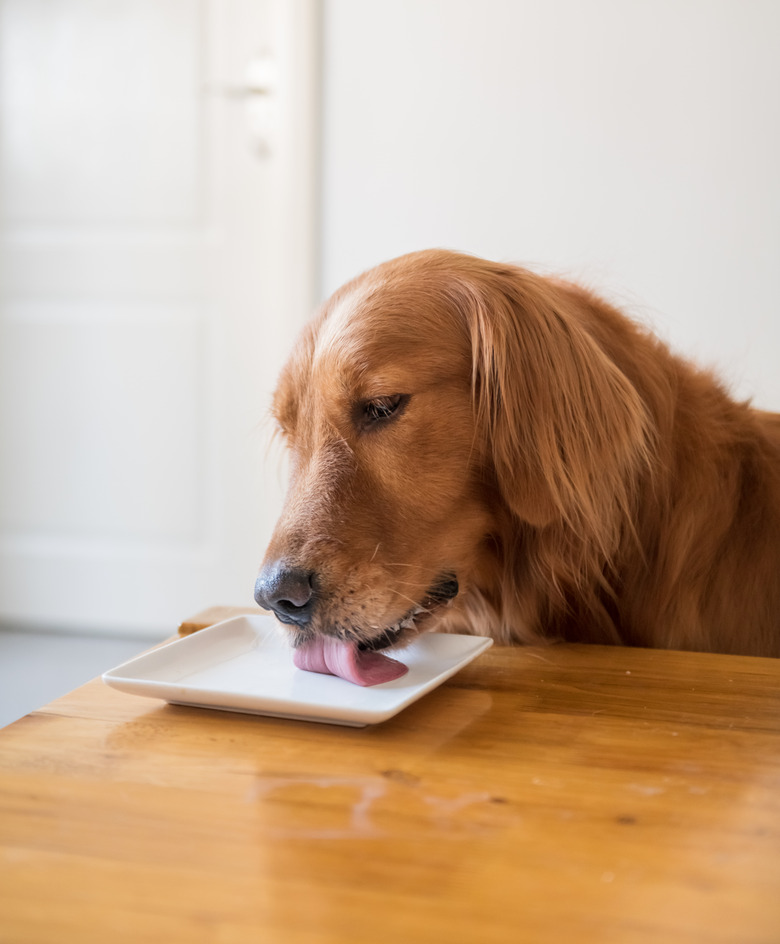Is It Safe For Dogs & Humans To Share Plates?
You might like sharing food with your dog, and you might even let them lick your dish clean or give them your leftovers. But is it safe for you and your pet to share dinnerware? It's not recommended to use your family's dinnerware when feeding your dog, and it isn't wise to share food directly with your dog. Doing either of these things could put your health and the health of your pet at risk.
Dog plates can harbor pathogens
Dog plates can harbor pathogens
If you're thinking about using your dinnerware to feed your dog, keep in mind that a variety of bacteria, such as E. coli, salmonella, and listeria, can be found in pet food, and the bacteria can survive on dishes.
In addition, there's the risk of intestinal parasites, such as roundworms and tapeworms, which can infect pets and people. Visceral larval migrans refers to infection when humans ingest parasites. Contaminated dishes and bowls could cause transmission of parasites to individuals of all ages, including children. Routinely deworming your dog, using a separate set of pet bowls, and not sharing food with your dog are ways to reduce the risk.
Food safety concerns when sharing dishes with dogs
Food safety concerns when sharing dishes with dogs
Many human foods are not safe for dogs, so your pet can become sick or even die if they ingest a food that's toxic to them. But in addition to foods that are known to be toxic to dogs, such as chocolate, there are other hazards to consider, such as choking hazards from leftover bones or pieces of food that are too large.
Human food can also contain high amounts of sugar, fat, and salt, which could be detrimental to your pet's health. Therefore, if your dog even just licks your plate after you're finished eating, they might be in danger of ingesting something they shouldn't.
Properly sanitizing your dinnerware can be difficult if you share it with your dog, so this might put your family's health in jeopardy. If you aren't able to thoroughly clean your dishes before feeding your dog, your pet might consume something harmful.
Sharing dishes might result in canine behavioral problems
Sharing food from the table with your dog might cause behavioral issues. Once they get used to the idea of being able to grab food from your dish, your dog might jump up on a chair at the dinner table, annoy you and your dinner guests, or sneak a piece of food off the table. If the food isn't safe for your dog to eat, health issues or emergencies may arise.
Use separate bowls and dishes for humans and pets
Use separate bowls and dishes for humans and pets
Purchase a set of food dishes for dogs so you won't need to share any of your dinnerware and always wash them carefully.
Some pet owners don't wash their dog's bowls often enough. As a result, the bacterial load can become high. According to a PLOS One study, 22 percent of people surveyed stated they wash their dog's dish once a week on average. Also, 18 percent of people stated they only wash it "less than every three months or not at all." Only 12 percent said they wash it at least once a day.
Other diseases that can be found on pet food and water bowls, especially public bowls or those that aren't cleaned regularly, include giardia, Leptospira, coccidia, and MRSA. These pathogens are capable of making both you and your dog sick, so washing the bowls completely is key.
- Hand wash your dog's bowls with dish soap and hot water after every meal and wash water bowls every day. For a deeper clean, you can try a diluted bleach and water solution but be sure to rinse thoroughly because dogs may not want to eat from a bowl that smells like bleach.
- Washing dog bowls with human dishes isn't a good idea. Even when using the dishwasher, clean them separately from human dinnerware.
- Stainless steel and ceramic are durable and easy to clean. Plastic, on the other hand, may harbor more bacteria, especially if it's scratched or damaged.
- Wash your hands after handling your pet's food and water bowls and keep the floor around the bowls clean.
In summary
In summary
Although it might be tempting to use your dinnerware to feed your canine companion, it's best to buy a set of dog plates and wash them after each use. Doing so can help keep you and your pet safe.


